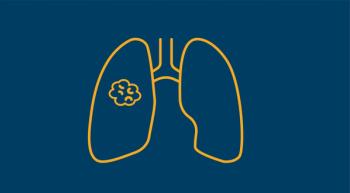
Updates from the ongoing S1619 trial suggest that a triplet combination regimen of neoadjuvant cisplatin, pemetrexed, and atezolizumab is effective and tolerable in the treatment of patients with resectable pleural mesothelioma.

Lindsay Fischer is an editor at ONN. She joined MJH life sciences in 2021 after graduating from Rutgers University with majors in both English and Spanish and a minor in creative writing. When she is not writing, or researching the latest oncology nursing news, Lindsay is an amateur backpacker and rollerblader. Email Lindsay at lfischer@mjhlifesciences.com

Updates from the ongoing S1619 trial suggest that a triplet combination regimen of neoadjuvant cisplatin, pemetrexed, and atezolizumab is effective and tolerable in the treatment of patients with resectable pleural mesothelioma.

International lung cancer clinical trial sites reported that flexibilities in time and place were effective strategies to mitigate COVID–19-related patient concerns and to increase participation.

After the 3-arm, JAVELIN Ovarian 100 trial terminated at the interim analysis, researchers concluded that avelumab is not yet a suitable first-line treatment option for patients with advanced epithelial cancer.

The impact of animal-assisted therapy is felt by more than just patients with cancer, explained Cynthia Ingram, BS, RN, HN-BC, COHN-S. Service animals like her dog, Tori, can also have a positive impact on the well-being of caregivers and health care providers.

The ANA has issued a statement to the HHS imploring them to declare a national crisis.

Over half of the states in the United States have legalized medical cannabis. What does that mean for nurses who care for patients with cancer?

“It’s a Privilege, I feel very honored to be helping patients.”

Pembrolizumab has been granted full approval as a first-line treatment for a select population of patients with bladder cancer.

Kelly Garvin, BSN, RN, OCN, discusses the impact of CAR T-cell therapy on patients and how nurses care for them, as well as her expectations on how indications will grow.

As patients with hematologic cancers live for normal life expectancies, the consequences associated with opioid use becomes more severe.

Tisagenlecleucel is a CAR T-cell therapy approved to treat follicular lymphoma that has minimal toxicity and is safe in the outpatient setting.

The FDA approved ivosidenib as the first targeted therapy to treat patients with previously treated IDH1-mutated cholangiocarcinoma.

While disparities exist in screening accessibility among the Hispanic/Latinx communities, the implementation of interventions have shown promising results in increased clinical trial participation.

Patients with metastatic melanoma treated with the IL-2 agonist experienced a 78.5% change in target lesion size.

The new Oncology Medical Home standards represent a universal benchmark in a value-based model of oncology care.

The regulatory decision is based on findings from collective data from the dMMR endometrial cancer cohort A1 and the dMMR solid-tumor, non-endometrial cancer, cohort F of the ongoing phase 1 GARNET trial (NCT02715284).

Patients with non-small cell lung cancer driver mutations respond better to targeted treatments compared to chemotherapy, yet less than half of these patients receive next generation sequencing.

“Animal-assisted therapy has been shown to reduce stress, improve energy levels, and decrease perceived pain and anxiety.”

“If you're an oncology nurse, you will have patients with immunotherapy–which is why we want to make sure that we are really familiar with these side effects.”

Belzutifan, a hypoxia-inducible factor inhibitor, has been approved for treatment of adults with cancers related to von Hippel-Lindau disease.

Although the use of CAR T-cell therapies are associated with potentially serious adverse events, the treatment provides patients whose disease has failed to respond to previous treatments with hope, according to Kelly Garvin, BSN, RN, OCN.

Teresa Knoop, MSN, RN, AOCN, says it is important for oncology nurses to understand the naming convention of biosimilars as it is an important aspect of anticipating adverse events.

Beth Sandy, MSN, CRNP, OCN, says that she would like to see 95% of eligible patients receive biomarker testing in the next 5 to 10 years.

Patients with metastatic castrate-resistant prostate cancer and PTEN-loss tumors experienced improved radiographical progression-free survival with ipatasertib plus abiraterone.

From orchestrating local infusion appointments to making lunch for a patient, Kathleen Lutz, RN, NP-BC WH, constantly strives to provide an excellent level of supportive care.

“[Drug adherence] seems like a problem we could potentially solve or, at least, make much better, and we are not really doing enough right now to do that.”

At 12 months, 97% patients treated with single infusions of cilta-cel had responded to the therapy.

The FDA has approved the first immunotherapy, pembrolizumab (Keytruda), to treat patients with high-risk early-stage triple-negative breast cancer.

The International Association for the Study of Lung Cancer (IASLC) has published an updated consensus on the use of liquid biopsy in screening non-small cell lung cancer (NSCLC).

The FDA has granted a breakthrough therapy designation for venetoclax following interim results from the ongoing M15-531 trial.